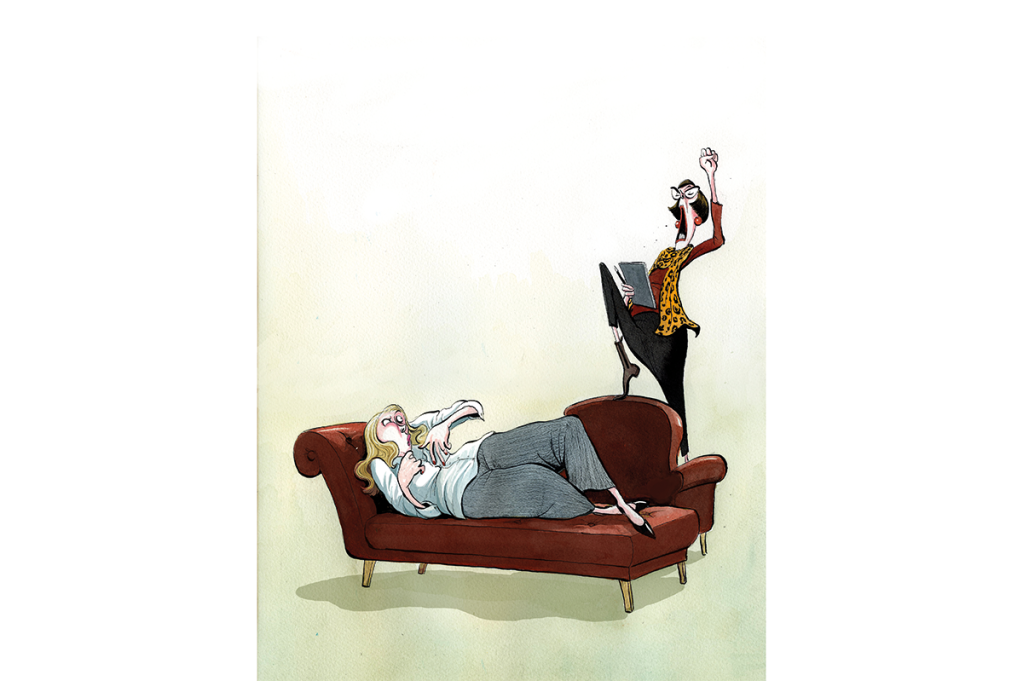Mental health therapists are supposed to be deliberate in making sure that their personal politics don’t get in the way of treating their patients. I was taught during graduate school that separating my “stuff” from my patients’ therapy was essential. After all, their therapy was all about them.
But that has changed in this country — everywhere from college-level classes and professional organizations, to therapy practices both public and private.
Earlier this summer, in a private group of mental health professionals that I administrate, I witnessed how the critical theory ideologues are destroying mental healthcare.
During my time moderating the group I worked hard to avoid any political positions and keep the page focused on clinical work. One day I began to receive requests to post an advertisement for a political rally being held on behalf of queer theory and trans ideology in our city. I declined the requests explaining that the group is clinical, not political, as was stated in our page rules.
A fellow group administrator went around me and posted the advertisement for the rally herself.
I took down the post and sent her a private message informing why I had done so. She replied with deflated curiosity initially, asking why I felt the rally was a problem. I informed her the “No Hate in Our State” rally was a political advocacy event with one particular political view on several bills regarding sexuality and trans ideology in the school system — and thus violated the group’s rules.
She was incensed. Other group members started to question why the post was removed. I informed them we would not be including any political materials in our group from any political perspective other than links to actual bills that may impact our work.
Suddenly a gaggle of mainly white, leftist, heterosexual women was accusing me of bigotry, racism, homophobia, transphobia and facism. They insisted the rally was not political, but a way to fight against “hate” and “bigotry”. Group members falsely claimed that “news of my bigotry” had spread to other groups and was degrading the reputation of our mental healthcare community.
Of course, my sin wasn’t that I had tried to keep the group politically neutral. It was that by even acknowledging that the rally was political, I had proved I was not one of them.
Never mind that I have a child that is part of the LGBTQ+ community whom I love and fiercely protect. Because I sought to avoid the perception that our group was hostile to individuals who disagree with left-wing “queer theory,” it was imperative I be banished.
Despite the cries that I needed to be removed as an administrator for the safety of the group, I stood firm. I explained calmly and assertively that I would not leave and that continued accusations and character assassinations would be met with both legal action and reports to our licensing board.
Our codes of ethics require us to resolve differences of opinion or conflicts civilly and one-on-one with no public or private gossip. They were breaking legal statutes in our state as well as our professional code of conduct.
Within twenty-four hours, they had completely backed down and decided to leave the group to start their own page where they could post political advocacy. I reaffirmed our group rules regarding politics and removed anyone who wouldn’t agree to abide by them. We went from over 700 members to around 350.
I am now leaving the group behind so I may share publicly what happened without violating the rules we set for the space.
The mass exodus suggests that a large number of mental health professionals currently value political advocacy over peer and client relationships. In other conversations, therapists have admitted that they try to sneak critical race and gender theory into their sessions with patients, even if their patients are resistant to the idea. Some have even said that they encourage their patients to engage in certain types of political activism as a form of “empowerment.”
No one who values ethical mental healthcare can afford to remain silent as others in our profession use their positions of power to bully and demagogue. They are burning down the therapeutic relationship with their deep insecurities fueled by guilt due to their “whiteness” and privilege.
We therapists are truly privileged. Our privilege is to bear witness to the raw humanity our clients share with vulnerability and trust in their darkest, scariest, most painful moments. That is what I am fighting to protect. That is what the group I am leaving is privileged to have, if they can fight hard enough to keep it.





















